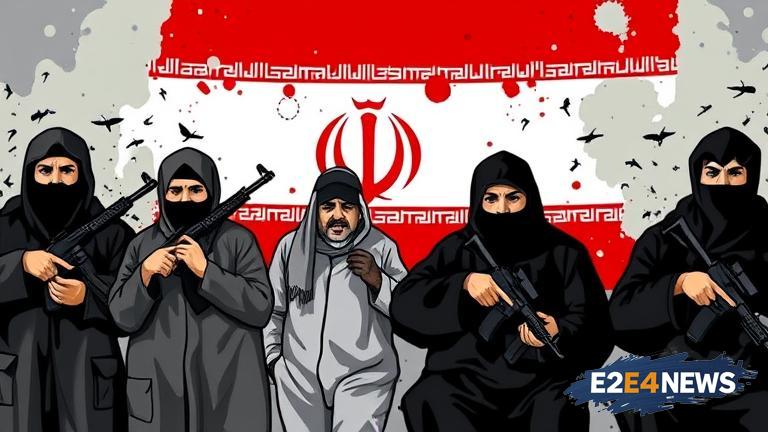Iran has carried out the execution of two members of an exiled militant group, known as the Mojahedin-e Khalq (MEK), amidst rising tensions between the country and the international community. The executions have been widely condemned by human rights organizations and governments around the world. The MEK, also known as the People’s Mujahedin of Iran, is a leftist Islamic militant group that has been in exile for decades. The group has been responsible for numerous attacks on Iranian government targets and has been designated as a terrorist organization by several countries, including the United States. The executions are seen as a significant escalation of the conflict between Iran and the MEK, and have raised concerns about the safety of other members of the group. The Iranian government has accused the MEK of being responsible for the deaths of thousands of people, including civilians and government officials. The group has denied these allegations and claims that it is fighting for democracy and human rights in Iran. The executions have also sparked concerns about the use of the death penalty in Iran, which is one of the countries with the highest rates of execution in the world. Human rights organizations have criticized the Iranian government for its use of capital punishment, citing the lack of due process and the use of torture to extract confessions. The international community has also expressed concerns about the situation, with the United Nations and the European Union calling for an end to the use of the death penalty in Iran. The executions are also seen as a sign of the increasing tensions between Iran and the West, which have been escalating in recent months. The United States and other countries have imposed sanctions on Iran over its nuclear program and human rights record, and the country has responded with aggressive rhetoric and actions. The situation has raised concerns about the potential for further violence and instability in the region. The MEK has been based in Iraq for many years, but has recently relocated to Albania, where it has been granted asylum. The group has a significant presence in the United States and Europe, where it has lobbied for support and funding. The Iranian government has accused the MEK of being a tool of Western intelligence agencies, and has claimed that it is being used to destabilize the country. The executions have also sparked concerns about the treatment of prisoners in Iran, who are often subjected to torture and other forms of abuse. The Iranian government has denied these allegations, but human rights organizations have documented numerous cases of abuse and mistreatment. The situation has raised concerns about the potential for further human rights abuses in Iran, and has highlighted the need for greater international pressure on the country to respect the rights of its citizens. The executions are also seen as a sign of the increasing repression of dissent in Iran, where the government has cracked down on opposition groups and activists in recent years. The international community has called for an end to the repression and for the release of all political prisoners in Iran. The situation has raised concerns about the potential for further instability and violence in the region, and has highlighted the need for a peaceful resolution to the conflict. The Iranian government has claimed that the executions are a necessary measure to protect national security, but human rights organizations have argued that they are a violation of international law. The executions have also sparked concerns about the potential for further retaliation by the MEK, which has vowed to continue its fight against the Iranian government. The situation has raised concerns about the potential for further violence and instability in the region, and has highlighted the need for greater international pressure on the Iranian government to respect the rights of its citizens.
